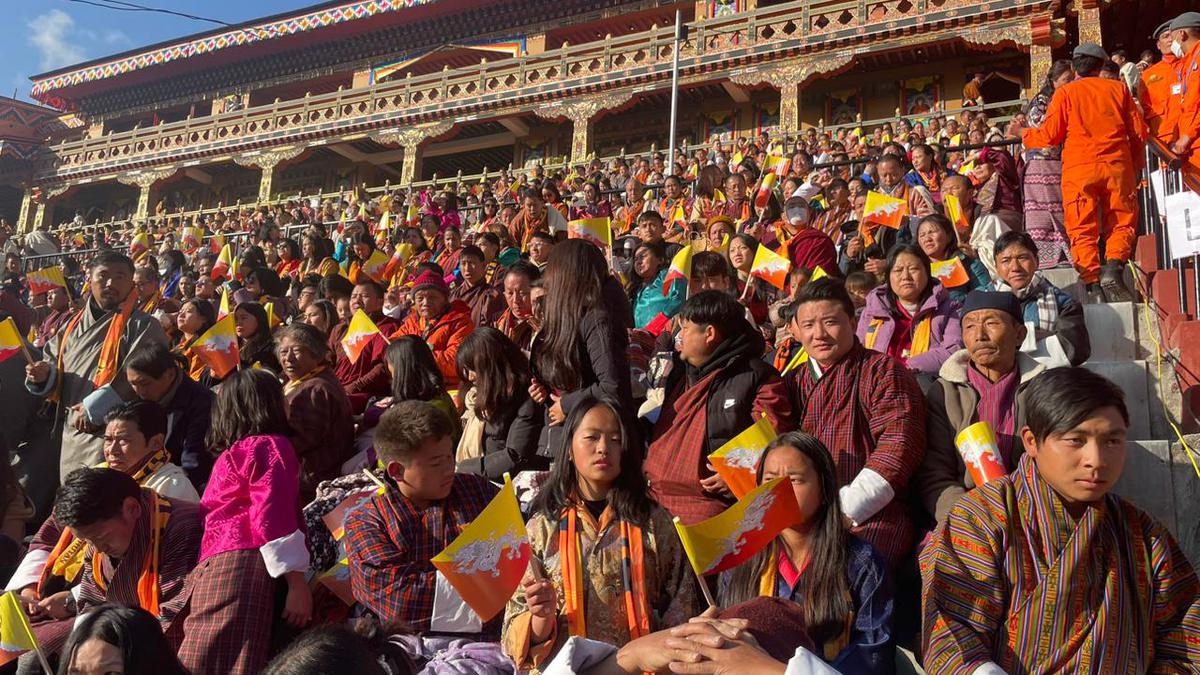
Hopes for Gelephu mega-project, economic revival dominate voters in Bhutan ahead of January 9 elections
The Hindu
Bhutan's King Jigme Khesar Namgyel Wangchuck announces "mindfulness" mega-city project, SAR, to create economic opportunities and reverse youth migration.
The Gelephu “mindfulness” mega-city project or Special Administrative Region (SAR) announced by Bhutan’s King Jigme Khesar Namgyel Wangchuck on Sunday, as well as fixing the economy and reversing youth migration trends, will be the major tasks for the future Prime Minister, whichever party wins the January 9 elections, both the contenders for the position told The Hindu.
The contenders — former Bhutanese Prime Minister Tshering Tobgay, whose PDP (People’s Democratic Party) lost the last elections in 2018, and former top civil servant Pema Chewang, whose BTP (Bhutan Tendrel Party) is the newest entrant in Bhutanese politics — began their campaign last week for the second round of elections, after defeating former PM Dr. Lotay Tshering’s DNT party in the first round held in November.
“The Gelephu project will be a big responsibility for the next government,” said Mr. Chewang, who was in Thimphu for the National Day. “His Majesty [King Jigme Wangchuck] has initiated it, and anyone who comes to power must give it their full support to realise the vision,” he added, when asked about the viability of the project, billed ambitiously as an economic hub on Bhutan’s southern border with Assam. “It is not only for Bhutanese but for all of South Asia,” he added.
Calling the announcement of the 1,000-sq. km SAR historic, Mr. Tobgay said that the project’s big hope was to ensure that Bhutan’s youth see work and skilling opportunities in Bhutan itself. According to a study quoted by the Kuensel newspaper, the number of people leaving the country for longer terms increased from 3,000 a month last year to 5,000 a month this year.
“The economy took a battering during Covid, and we have not been able to resuscitate it since, which has led to this out-migration by our youth. We have to reverse this trend by creating opportunities within Bhutan,” Mr. Tobgay said when asked about the benefits of the Gelephu project at a time when Bhutan’s three-billion dollar economy is facing a number of challenges.
While the PDP secured the highest number of votes and seats by far in the four-party contest in the primary round, and is the frontrunner ahead of the BTP, analysts have warned that second rounds in Bhutan have often sprung a surprise winner. This is the fourth Bhutanese election since the former King Jigme Singye Wangchuck abdicated in favour of his son in 2006 and introduced multi-party elections in Bhutan. Each time since then, the incumbent government has been voted out.
When asked, most voters here also pointed out that solving economic issues was their main worry ahead of the vote on January 9. “Inflation today is a real problem; we are all dealing with higher prices and this is the reason so many young Bhutanese are leaving the country,” said Goma Rai, an accountant in her 20s.











